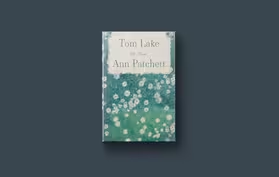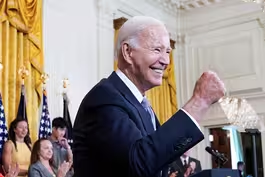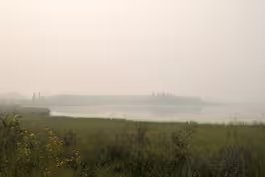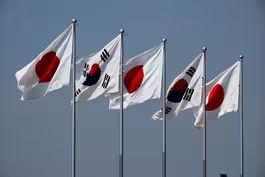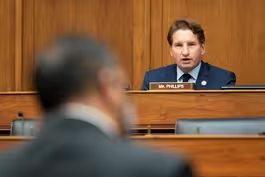
A look at Egypt's struggles 10 years after Rabaa massacre
Clip: 8/17/2023 | 9m 47sVideo has Closed Captions
A look at Egypt's struggles 10 years after soldiers killed hundreds in Rabaa massacre
This week marks ten years since the largest mass killing in Egypt’s modern history. In 2013, Egyptian soldiers overran a protest camp in Cairo’s Rabaa Square, killing hundreds. Six weeks earlier, the military had overthrown the elected government of Muhammad Morsi and the Muslim Brotherhood. Supporters had created a protest city and its destruction still reverberates today. Nick Schifrin reports.
Problems playing video? | Closed Captioning Feedback
Problems playing video? | Closed Captioning Feedback
Major corporate funding for the PBS News Hour is provided by BDO, BNSF, Consumer Cellular, American Cruise Lines, and Raymond James. Funding for the PBS NewsHour Weekend is provided by...

A look at Egypt's struggles 10 years after Rabaa massacre
Clip: 8/17/2023 | 9m 47sVideo has Closed Captions
This week marks ten years since the largest mass killing in Egypt’s modern history. In 2013, Egyptian soldiers overran a protest camp in Cairo’s Rabaa Square, killing hundreds. Six weeks earlier, the military had overthrown the elected government of Muhammad Morsi and the Muslim Brotherhood. Supporters had created a protest city and its destruction still reverberates today. Nick Schifrin reports.
Problems playing video? | Closed Captioning Feedback
How to Watch PBS News Hour
PBS News Hour is available to stream on pbs.org and the free PBS App, available on iPhone, Apple TV, Android TV, Android smartphones, Amazon Fire TV, Amazon Fire Tablet, Roku, Samsung Smart TV, and Vizio.
Providing Support for PBS.org
Learn Moreabout PBS online sponsorshipWILLIAM BRANGHAM: It was the largest mass killing in Egypt's modern history.
Ten years ago this week, Egyptian soldiers overran a protest camp in Cairo's Rabaa Square, killing hundreds.
Six weeks earlier, the military had overthrown the elected government of Mohammed Morsi and the Muslim Brotherhood and supporters of the ousted government had created a protest city in Rabaa.
Its destruction still reverberates in today's Egypt.
Nick Schifrin looks back.
NICK SCHIFRIN: Just after dawn, chaos.
Live fire flew threw one of Cairo's busiest squares.
For 12 hours, Egyptian forces besieged Rabaa.
They bulldozed homemade barricades.
Snipers fired from nearby rooftops, the aftermath, a scorched square, a camp turned into a carcass and mosques converted to morgues.
The government death toll was 624.
Human Rights Watch says the real count was likely at least 1,000.
Rabaa had become a tent city.
Tens of thousands built a self-sustaining protest with their own kitchens, water distribution, and administration that ran 24/7 for more than 45 days.
They demanded the reinstatement of Mohammed Morsi, the Muslim Brotherhood leader who became Egypt's first democratically elected president after the 2011 revolution that deposed Hosni Mubarak.
And they protested then-General Abdel Fattah El-Sisi, who, in early July 2013, had seized power.
Sisi became president a year later in 2014 in elections that independent observers called unfair.
He would later change the Constitution to remain president potentially past 2030.
Today, Rabaa is quiet.
The anniversary was not marked.
Nobody was ever held accountable.
In Sisi's Egypt, there is no room for memorializing massacre.
Since 2013, the government has imprisoned more than 60,000 Egyptians, from liberal activists to anyone connected to the Muslim Brotherhood.
Ten years ago, it was a turning point, proving the military was willing to use force to cement its hold on power.
And that hold on power remains as strong now as it was 10 years ago.
For more, we turn to our own Jane Ferguson, who was in Cairo that day and covered the Rabaa massacre, and Hossam Bahgat, an Egyptian human rights activist and founder of the Egyptian Initiative for Personal Rights based in Cairo.
Thanks very much, both of you.
Jane, take us back to that day.
What did you see?
JANE FERGUSON: It began early in the morning, Nick.
You had massive units of the Egyptian security forces go in and simply start opening fire.
Now, myself and my team were at one of the exit and entrance points of the Rabaa Square soon afterwards, as soon as we rushed there.
And we saw people being pulled out, those with massive gunshot wounds and just utter scenes of chaos, as people were trying to flee.
And, eventually, we made our way by simply following the crowds to various places where the bodies were being taken.
And what we found when he entered a mosque was that it was filled with an increasing number of bodies of those who had been shot by their own government.
One of the main challenges for those simply trying to organize this amount of bodies and process them is trying to keep the bodies from decomposing.
Here, now, they have started bringing in bags of ice as an emergency scenario, placing them on top of the bodies to try to keep them from decaying.
Those were really shocking scenes at the time.
It's important to remember that this is believed to have been one of the biggest ever single events of demonstrators or protesters being shot dead in the street in modern history, and in the following days and weeks, because what happened was an increasing crackdown on protesters, Morsi supporters and journalists.
NICK SCHIFRIN: And that crackdown, as you said, Jane, continued to journalists.
How did the government make clear they were willing to prosecute journalists?
And how does that willingness continue to this day?
JANE FERGUSON: Well, shortly afterwards, it was as resistance kept continuing and small protests were popping up.
The Egyptian authorities actually arrested largely the entire bureau of the Al-Jazeera English team at the time, which included an Australian journalist, Peter Greste.
Him and his team and his bureau chief, Mohamed Fahmy, they were -- they were arrested and sent to jail and effectively spent over a year in an Egyptian jail.
That was a message to news organizations, to international news organizations, Americans, Europeans, that sending journalists to Egypt to investigate and report on human rights would be extremely dangerous.
And what we have seen over the last decade is that that has worked.
NICK SCHIFRIN: Hossam Bahgat, how was Rabaa a turning point for Egypt?
HOSSAM BAHGAT, Egyptian Initiative for Personal Rights: It was a turning point in many different ways.
It was basically not just the end of the promise of the Egyptian revolution of 2011, but really the end of our country as we know it.
Egypt was never really a liberal democracy.
It was always a country with a problematic human rights record and serious areas of concerns.
But what we saw following Rabaa is just rule by one military leader who established a dictatorship that not just imprisoned all government critics, but, for the first time in Egyptian modern history, eviscerated civic space altogether.
So we have been ruled for the last 10 years without opposition parties, without critical media, without independent courts or really parliamentary oversight, without any space for civil society, and with zero room for dissent and zero public demonstrations.
NICK SCHIFRIN: Was there ever any justice for what happened in Rabaa?
HOSSAM BAHGAT: The only way to describe it is the opposite of justice.
It's been 10 years with, according to government figures, at least 680, maybe, killed, thousands injured.
And the only people that have been arrested and prosecuted since then are the survivors of those massacres.
There was one official -- official inquiry conducted that the government allowed and was sort of forced into 10 years ago.
That inquiry produced a report that was submitted to the president, yet the report of that fact-finding commission was never published, until really this week, when we made excerpts of it public for the very first time.
And, surprisingly, of course, the conclusions of that inquiry that were never made public almost, to a large extent, match the conclusions of independent journalists, of independent civil society investigations, which is that the government knew at the very high level that there is going to be a high human toll of casualties, that the shooting was indiscriminate, it was disproportionate with the threat that the security forces faced for only a handful of armed elements, and, most importantly, that the vast majority of those killed, that they were peaceful protesters, as opposed to the government's false narrative for the last 10 years that they had to open fire at armed elements among the protesters.
NICK SCHIFRIN: And, finally, Jane Ferguson, in the time we have left, you have reported so much from across the region.
Put this in perspective for us.
What is the legacy of Rabaa and all the changes in Egypt that we have just been discussing on North Africa and the Middle East?
JANE FERGUSON: We have really got to look, Nick, back at 2013 as a year of something of a crisis in American foreign policy in the Middle East and in the Arab world.
Of course, at the time, you had the Obama government -- or the Obama administration, which had -- whenever you had the coup happen, they would not use the word coup.
They condemned any of the violence that happened as a result of this -- of this massacre.
Of course, in the same year, we also had the famous red line in Syria, where the Obama administration had said, if the Assad regime uses chemical weapons on their own people, they would be willing to act militarily.
And that red line was crossed, and there wasn't really any military response from the United States.
It was in that moment that I think a lot of people in the region look back and will say, this is when United States' policy was in something of a crisis, whereby U.S. withdrawal from the Middle East, was happening at a time when people were being massacred by their own governments.
And the last 10 years has seen an extraordinary amount of violence against civilians, of human rights abuses across the Middle East, and a real backlash against those heady, hopeful Arab Spring days.
NICK SCHIFRIN: Our Jane Ferguson, Hossam Bahgat, thank you very much to you both.
JANE FERGUSON: Thank you.
Ann Patchett on the inspirations for new book, 'Tom Lake'
Video has Closed Captions
Clip: 8/17/2023 | 8m 7s | Ann Patchett on the inspirations for her latest novel, 'Tom Lake' (8m 7s)
Are Inflation Reduction Act climate change policies working?
Video has Closed Captions
Clip: 8/17/2023 | 6m 38s | Are climate change and clean energy policies included in Inflation Reduction Act working? (6m 38s)
News Wrap: Thousands flee wildfire in Northwest Territories
Video has Closed Captions
Clip: 8/17/2023 | 4m 41s | News Wrap: Tens of thousands flee as wildfire spreads in Canada's Northwest Territories (4m 41s)
Rahm Emanuel on Biden's summit with Japan, South Korea
Video has Closed Captions
Clip: 8/17/2023 | 6m 7s | Ambassador Rahm Emanuel outlines goals of Biden's summit with Japan and South Korea (6m 7s)
Rep. Dean Phillips discusses possible challenge to Biden
Video has Closed Captions
Clip: 8/17/2023 | 6m 40s | Democratic Rep. Dean Phillips explains why he wants to see a primary challenge to Biden (6m 40s)
Providing Support for PBS.org
Learn Moreabout PBS online sponsorship
- News and Public Affairs

FRONTLINE is investigative journalism that questions, explains and changes our world.

- News and Public Affairs

Amanpour and Company features conversations with leaders and decision makers.












Support for PBS provided by:
Major corporate funding for the PBS News Hour is provided by BDO, BNSF, Consumer Cellular, American Cruise Lines, and Raymond James. Funding for the PBS NewsHour Weekend is provided by...

